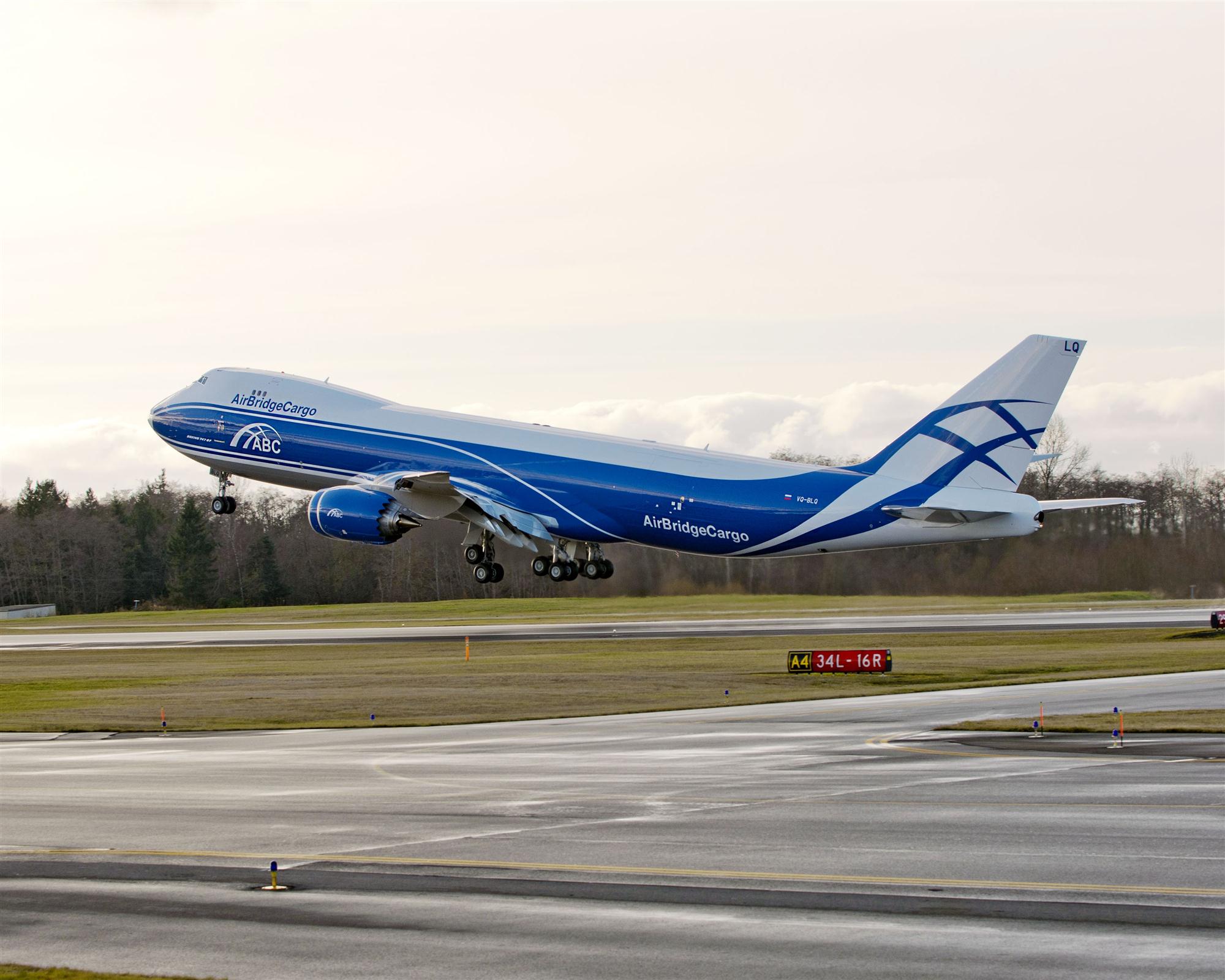Volga-Dnepr stunned observers and competitors in June with a whopping order for as many as 20 Boeing 747-8 freighters. At a time when a growing number of pundits were beginning to write off the 140-tonne behemoth, the order from the Russian cargo outfit marked a boost for the struggling freighter at the apex of Boeing's all-cargo line-up.
Volga-Dnepr, which took delivery of its first 747-8 freighter in 2012 for its scheduled freighter subsidiary AirBridgeCargo Airlines (ABC), will receive the 20 aircraft over the next seven years. At list prices the order is worth US$7.4 billion, although the carrier is bound to have obtained a significant discount from the plane manufacturer. Moreover, the agreement includes a provision for the carrier to provide its Antonov 124 freighters to move aviation equipment for Boeing and its partners.
 Since the announcement of the order, Volga-Dnepr has moved to establish a subsidiary based in the UK and is allegedly looking to establish international routes out of Manchester. This move would likely absorb a few 747-8 freighters, which have become the backbone of ABC. The scheduled carrier recently reported a 17% rise in tonnage in the first half of 2015.
Since the announcement of the order, Volga-Dnepr has moved to establish a subsidiary based in the UK and is allegedly looking to establish international routes out of Manchester. This move would likely absorb a few 747-8 freighters, which have become the backbone of ABC. The scheduled carrier recently reported a 17% rise in tonnage in the first half of 2015.
Relief at Boeing over an order for its largest freighter (although the agreement has yet to be finalized - it is currently a memorandum of understanding) has likely deepened in the meantime, as Atlas Air announced plans to get one more 747-8 freighter. In addition, the ACMI leasing firm is taking on a B747-400BCF on a short-term operating lease to replace another aircraft whose lease expired.
Interest in B747 freighters has also popped up in other places. Qatar Airways, whose freighter fleet consists of B777 and A330 cargo aircraft, is on course to introduce a leased B747-400BCF to its line-up at the beginning of August. In October this is due to be replaced with a 747-400F, which offers better payload and fuel economics.
“The addition of the B747 freighter will provide greater flexibility to our global network by supplementing our existing scheduled services as and when required," said Ulrich Ogiermann, chief officer of cargo.
Prior to his engagement at the Middle East carrier, Ogiermann had headed Cargolux, an all-747 cargo airline. The European carrier boosted its fleet with a 747-400ERF in May to meet increased demand.
According to senior Boeing executives, the improvement in market conditions since last autumn has revived interest in the 747 freighter and led to a number of discussions with potential customers for the 747-8. Still, many observers remain sceptical about the outlook for 747 freighters.
Notwithstanding the recent interest in 747s, Boeing confirmed in July – after the MOU with Volga-Dnepr – that it would pare down 747-8 output beginning in September, as it had announced earlier. Production will be reduced to 15.6 747-8 aircraft in a year.
Before the announcement of the Volga-Dnepr agreement, Boeing had a backlog of 32 orders for 747-8s, 14 of them freighters, enough for two years of production. Last year it failed to sign a single order for a 747-8.
In the first half of this year Boeing has handed 19 widebody freighters to customers, nine of them B767-300 freighters going to FedEx. It delivered two 747-8Fs (to Korean Air and Cargolux), but eight B777-200Fs. The 777 freighter, which has a payload of 105 tons, has eclipsed the 747, even among Asian carriers, who have been a huge market for the 747 cargo plane. Airlines like China Southern, Air China Cargo and EVA Air, have been phasing out 747 freighters and replacing them with 777Fs.
As for the older 747-400F and 747-400ERF, their fortunes have improved with the drop in kerosene prices last winter, but their future remains under cloudy skies, and 50 are currently parked in the desert. According to one estimate, it would require annual market growth of 5% per year for two years to bring some of them back into service.
Boeing recently upped its demand forecast for aircraft in the next 20 years, but it predicts 4.7% average annual growth in demand for lift.
One aspect in favour of the 747 is that it is the only freighter bar some Russian models that can be loaded through the nose. For Qatar Airways this was a major reason for the decision to go for a 747-400 freighter, as it allows the carrier to target charter traffic, such as oil and gas business, where pieces are often too large to be loaded through a side door.
Whether this is enough to keep the 747 in demand is another question.
By Ian Putzger
Air Freight Correspondent | Toronto



